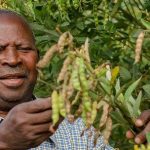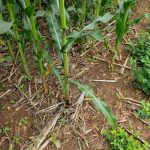Brochure on the work of the Malawi Strategy Support Program (MaSSP)
Report on a Pilot Study to Crowdsource Farm Gate Prices for Legumes in Southern Malawi
Little is known about farmgate prices in Malawi since data on the price trends are inconsistently collected. Yet this is important information for assessing the performance of agricultural markets. This report summarizes the findings from a pilot study to crowdsource farm gate prices for pigeon peas and chickpeas through the Farm Radio Trust platform.
Working Paper 31: Consumer Choices and Demand for Tilapia in Urban Malawi: What are the complementarities and trade-offs?
Working Paper 31 is an output of the Bunda Grant Scheme program of IFPRI-Lilongwe. It analyzes consumer choices and demand for two species of tilapia, Lake Malawi Oreochromis (Nyasalapia) spp. (Ny) and Oreochromis shiranus (Os), in unprocessed and processed form, in urban Malawi. The authors use data collected from a sample of 584 urban households in Malawi’s two major cities, Blantyre and Lilongwe.
Working Paper 30: Are Malawian Diets Changing? An assessment of nutrient consumption and dietary patterns
This working paper provides an updated analysis of the dietary patterns of Malawian households and their consumption of select nutrients – calories, protein, iron, vitamin A, zinc, and folate – using data from the third (2010/11) and fourth (2016/17) rounds of the Malawi Integrated Household Survey (IHS).
Understanding the adoption of climate-smart agriculture: A farm-level typology with empirical evidence from southern Malawi
Climate-smart agriculture (CSA) is increasingly promoted as a means to enhance food security and adapt agriculture to climate change. However, lack of access to land, labor, and financial capital may pose a significant barrier to adoption of resource-intensive CSA practices. To spur the wider uptake of CSA the international community has committed billions of dollars […]
- « Previous Page
- 1
- …
- 45
- 46
- 47
- 48
- 49
- …
- 69
- Next Page »





